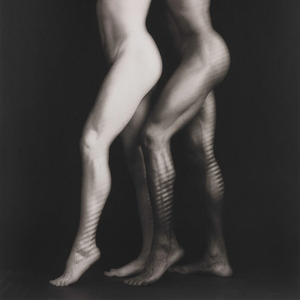Mapplethorpe: The Perfect Moment (exhibition): Difference between revisions
NCACintern (talk | contribs) No edit summary |
NCACintern (talk | contribs) No edit summary |
||
| (5 intermediate revisions by the same user not shown) | |||
| Line 20: | Line 20: | ||
'''The Incident:''' Many observers and elected officials were extremely disturbed and upset by the nudity of both adults and children in the works and believed that the work was not in accordance with pornography laws in Ohio. | '''The Incident:''' Many observers and elected officials were extremely disturbed and upset by the nudity of both adults and children in the works and believed that the work was not in accordance with pornography laws in Ohio. | ||
'''Results of Incident:''' Officials of the Contemporary Arts Center of Cincinnati restricted access to the museum to those over 18 and relegated the most explicit of the 175 photographs to a separate, further-isolated room. This was not enough, however, to keep a local sheriff from staging a raid on the exhibition and seeking indictments against museum director Dennis Barrie on obscenity charges; nor was it enough to keep the grand jury from handing up an indictment. Although Ohio law deemed it criminal to possess "kiddie-porn materials," legitimate museum displays were an exception. Dennis Barie and the Contemporary Arts Center of Cincinnati were acquitted, but this incident sparked debate about what is appropriate for the government to control regarding the content of art. | '''Results of Incident:''' Officials of the Contemporary Arts Center of Cincinnati restricted access to the museum to those over 18 and relegated the most explicit of the 175 photographs to a separate, further-isolated room. This was not enough, however, to keep a local sheriff from staging a raid on the exhibition and seeking indictments against museum director Dennis Barrie on obscenity charges; nor was it enough to keep the grand jury from handing up an indictment. Although Ohio law deemed it criminal to possess "kiddie-porn materials," legitimate museum displays were an exception. Dennis Barie and the Contemporary Arts Center of Cincinnati were acquitted, but this incident sparked a national debate about what is appropriate for the government to control regarding the content of art. The context these debates created was inhospitable to free expression, particularly artistic renditions of the naked and the nude. Only a year later, another national controversy erupted over the display of lascivious artwork, this time over a print of a Goya painting displayed in a public university classroom. Throughout the decade, controversies over provocative art which received public funding led right-wing Senators like Jesse Helms to campaign for the National Endowment for the Arts to be de-funded. | ||
'''Source:''' | '''Source:''' <br> • http://articles.latimes.com/1990-04-19/entertainment/ca-2114_1_contemporary-arts-center-mapplethorpe-images-mapplethorpe-controversy <br> | ||
• http://www.nytimes.com/1990/10/06/us/cincinnati-jury-acquits-museum-in-mapplethorpe-obscenity-case.html <br> | |||
• https://www.thefire.org/news/comeback-catechism-when-todays-speech-norms-launch-old-inquisitions | |||
{{DISPLAYTITLE:<span style="font-style: italic;">Mapplethorpe: The Perfect Moment</span> (exhibition)}} | {{DISPLAYTITLE:<span style="font-style: italic;">Mapplethorpe: The Perfect Moment</span> (exhibition)}} | ||
Latest revision as of 16:32, 24 July 2023
Date: 1990
Region: North America
Subject: Sexual/Gender Orientation, Explicit Sexuality, Nudity
Medium: Photography
Artist: Robert Mapplethorpe, Contemporary Arts Center of Cincinnati
Confronting Bodies: Cincinnati City officials
Dates of Action: 1990
Location: Cincinnati, Ohio, USA
Description of Artwork: A retrospective show for the late Robert Mapplethorpe which spanned twenty-five years of his career. The comprehensive work included celebrity portraits, self portraits, many nude images (some of which depicted children in various stages of undress), flowers, and sadomasochistic activities. The exhibition opened at the Institute of Contemporary Arts in Philadelphia in the winter of 1988.
The Incident: Many observers and elected officials were extremely disturbed and upset by the nudity of both adults and children in the works and believed that the work was not in accordance with pornography laws in Ohio.
Results of Incident: Officials of the Contemporary Arts Center of Cincinnati restricted access to the museum to those over 18 and relegated the most explicit of the 175 photographs to a separate, further-isolated room. This was not enough, however, to keep a local sheriff from staging a raid on the exhibition and seeking indictments against museum director Dennis Barrie on obscenity charges; nor was it enough to keep the grand jury from handing up an indictment. Although Ohio law deemed it criminal to possess "kiddie-porn materials," legitimate museum displays were an exception. Dennis Barie and the Contemporary Arts Center of Cincinnati were acquitted, but this incident sparked a national debate about what is appropriate for the government to control regarding the content of art. The context these debates created was inhospitable to free expression, particularly artistic renditions of the naked and the nude. Only a year later, another national controversy erupted over the display of lascivious artwork, this time over a print of a Goya painting displayed in a public university classroom. Throughout the decade, controversies over provocative art which received public funding led right-wing Senators like Jesse Helms to campaign for the National Endowment for the Arts to be de-funded.
Source:
• http://articles.latimes.com/1990-04-19/entertainment/ca-2114_1_contemporary-arts-center-mapplethorpe-images-mapplethorpe-controversy
• http://www.nytimes.com/1990/10/06/us/cincinnati-jury-acquits-museum-in-mapplethorpe-obscenity-case.html
• https://www.thefire.org/news/comeback-catechism-when-todays-speech-norms-launch-old-inquisitions
